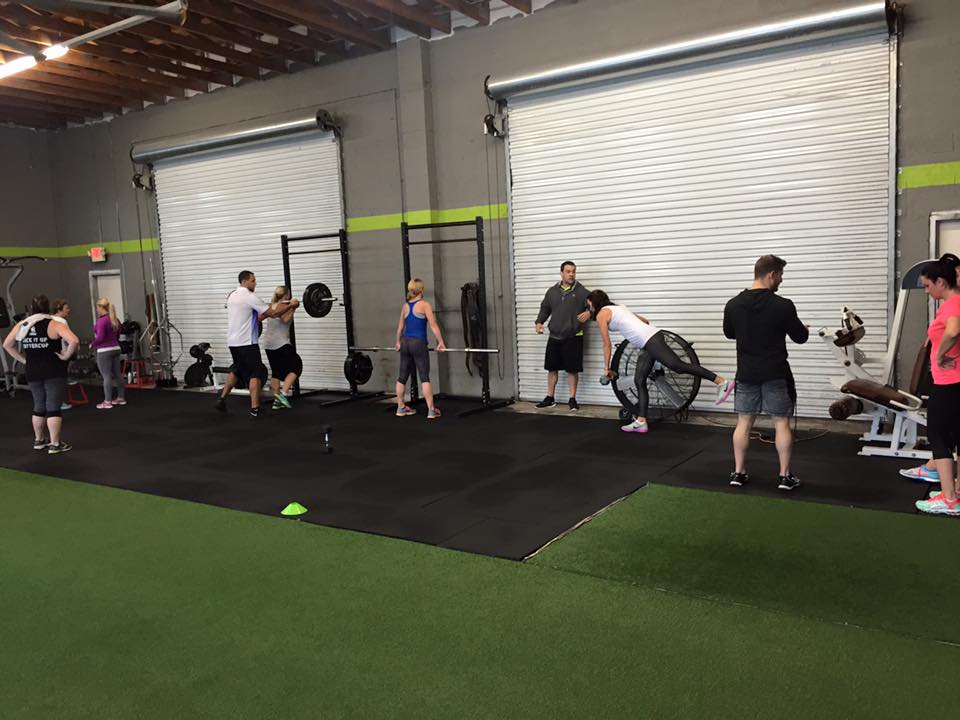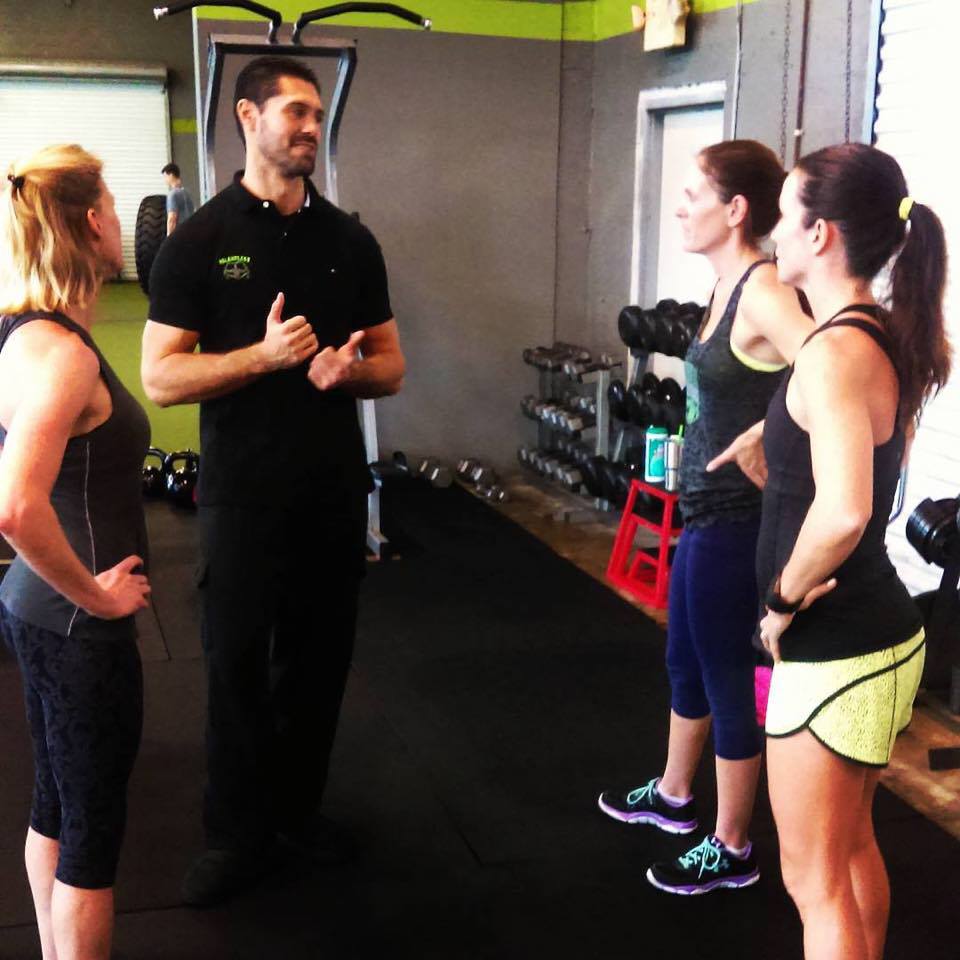
"If you have not failed at least 500 clients over 10 years, please don't start a blog on training and coaching. It comes off as vomit inducing no matter what your friends tell you. Thanks."
— Amir Siddiqui
I've been a personal trainer since 2009. It's the only profession that I've ever had and I'm going on eight years, two short of Amir's 10-year mark. Fortunately or unfortunately, people listen to me though, and it seemed worthwhile to offer something of my personal evolution in the field. (Maybe I'm leading everyone astray and ruining all your lives and careers. We'll find out in 10 years, which is about the time it takes for advice and insight to really bear fruit.)
What is the cost of being pretty damn good at something? Per the usual fitness industry clichés, I'll give the canned fitness industry answers that everyone loves so much:
- Hard work
- Dedication
- A love of learning
- A desire to constantly improve
That's lovely. I love your attitude. That said, none of those things gets you the golden ticket to improvement. Since I'm begging the question, what does? Idiocy, arrogance, failing and realizing that you're stupid repeatedly. Over and over and over with many, many, many people.
This industry loves its self-constructed idols, and no one likes to admit that he spent the first half of his career (or most of his career) being god awful at his job. But everyone does if their even halfway good.
The "Best" of All the Stupid Shit I Believed
Personally, I hate click bait article titles, but the above is suitable to what I'm about to share. I put forth that I was utterly terrible as a personal trainer for the first four or five years of my career, and this was despite having a large clientele, getting promoted and frequenting the number one spot in sales more than a few times. Going back to year one, how bad was I?
I made damn near every client squat, bench and deadlift with starting strength for 3 X 5 or 5 X 5 because I firmly believed that this was the 'be all end all' of lifting. It isn't. I had zero concept of programming, planning or really anything that constituted true effective progress, so I just copied workouts from Men's Health much of the time.
My testing ground for exercises was watching them and then immediately having clients try to perform them. I can fondly recall having a five-months pregnant woman attempt to do dumbbell snatches and utterly fail at it. That was a real winning moment. I never stretched in any fashion my clients who were tight and stiff or moved like shit. That was when static stretching went out of style, but "mobility" work hadn't yet replaced it. I just assumed that the lifting would magically create flexibility. It didn't.
Diet was a shit show. I really couldn't tell you what I told people. I think that I gave them lists of food rules and told them to drink green tea to burn extra body fat. I do recall copying the food list from the primal diet and just handing that to people because Paleo is magical. The idea of scaling workouts was utterly foreign to me as well. This ironically worked in my favor because my own personal training style is generally to kill myself with volume until I feel wrecked. So I would just throw a gazillion exercises at people until they were about to die. I actually got results this way (stupid hard training is better than stupid easy training).
I had the good fortune of being a pretty decent talker. I found out that by using neurobabble I could impress people enough and they would buy training because they assumed I knew what the fuck I was talking about. I had the great advantage of being tall, relatively lean and aesthetically pleasing looking. I very quickly realized that people choose trainers based on looks. While this didn't dissuade me from improving, this also meant that I beat out much more qualified people when clients chose trainers.
RECENT: Everything Starts at Zero
My "specialties" at the time were core training, balance training, dance training, strength training, weightlifting, bodybuilding and sports training. At the time, I think my boss suggested this. He reasoned that the more specialties we listed, the more appealing we all sounded to potential clients. I was anti-machine because that was cool. I was anti-isolation because that was cool, and I was anti-carbs because that was cool. I thought that carb back loading was a Nobel prize winning breakthrough because someone who used science couldn't be wrong.
I believed that you could burn out your central nervous system. Yes, I was that freaking stupid. I also thought that overtraining was a massive epidemic because this was a popular concept at the time. I never recommended that anyone do cardio, unless it was Prowler® work (which I never used but firmly believed was the holy grail of cardio), because this was also in the evil bracket at the time.
I got caught up in the minimalist junk for a short while and just had some people do three movements a session. Thankfully that didn't last long because minimalism is boring as hell and doing only two lifts for low reps is a recipe for looking like you don't even lift. In addition, untrained, general population clients are not overtrained. Stressed? Sure. Overtrained? Hell no.
I lamented the fact that I didn't have access to a glute ham raise, specialty bars, bands, chains, gymnastic rings and a bunch of other entirely unnecessary shit. The one trend that I never got caught up in? Balance training. Even then, I thought it seemed silly. Thank Crom.
Were You Really That Bad?
Visualize how awful I must have been. I was every shitty stereotype of a commercial gym trainer rolled into one tall and long-haired package. I couldn't even begin to list the awfulness of the sessions themselves. The fact that I never injured anyone is more a testament to the resilience of the human body than my exercise instruction.
I was a completely blind-minded, know-it-all trainer who assumed that I knew what I was doing based on bullshit I read online by other people who were equally stupid. The grand irony though? I had clients. How could this be?
Because if you are attractive, friendly and a smooth talker who delivers phenomenal customer service, you can get away with all manner of god awfulness in the actual training. People forget that this job is personal first and training second. If I had to warrant some explanation for my perceived "success," it's that I excelled at the "personal" part rather naturally. This made the "catching up" in the technical rather easy.
When Did You Stop Sucking?
The end of 2012 is when I actually would give myself an assessment of being "not terrible" and maybe call myself "pretty OK." It wasn't until 2014 that I truly felt I was in any position to offer anything worthwhile on actual training.
Do You Think You Are Good Now?
In a word, yes (cue being inevitably called an arrogant piece of shit by someone). I think I'm good now largely because I stopped listening, reading or caring about 99.999999 percent of the industry. It's why I don't read 10,000 blogs or technical masturbation articles anymore, and I don't read "popular" people's content for anything other than entertainment value. Occasionally, I'll encounter something that makes for good reading, although it tends to be written by people with little to no experience, so it's just that—entertaining to "know" but with no real experiential substance.
But there are exceptions. I know some good ones actually, but exceptions aren't rules. If I'm learning a craft, I find out who has been practicing it the longest and ask him or her first. So who is worth learning from? Lots of people are fun to listen to (listening versus learning could likely warrant its own post). Learning though—that's a smaller pool.
I'll give my best suggestions for figuring this out (and if there are exceptions, there are exceptions, but exceptions don't make for very good suggestions):
- Go through your FitPro friends. Anyone younger than 30 probably isn't worth it. Go with those over 30.
- Having eliminated those people under 30, cut off everyone with fewer than 10 years experience.
- Having now narrowed it down to a very small pool, further eliminate everyone who makes a living selling a product and not actually working with clientele (be it in person or online). Some people do both, but if they aren't actively practicing, cut them off.
- See who is left after that. Those are the people you should learn coaching and training from. Everyone else just makes for good listening, myself included.













1 Comment